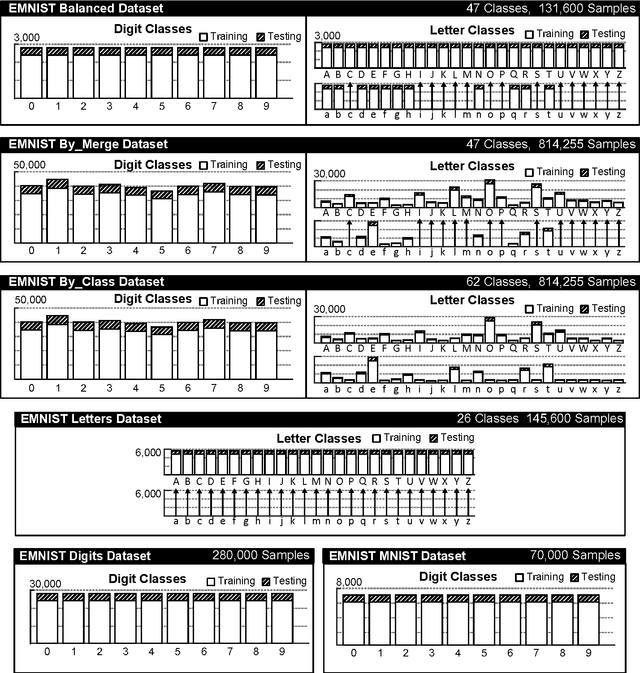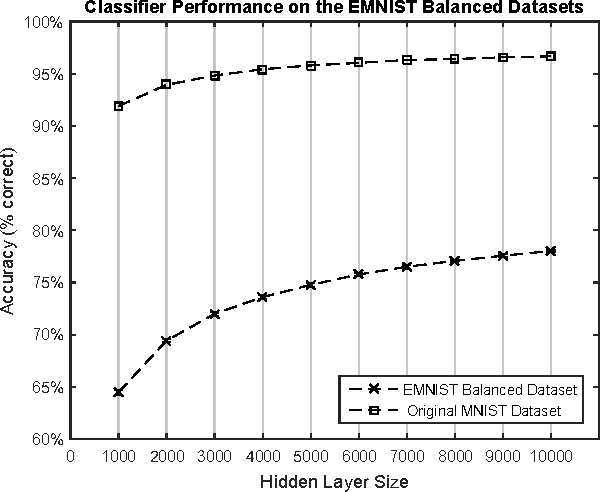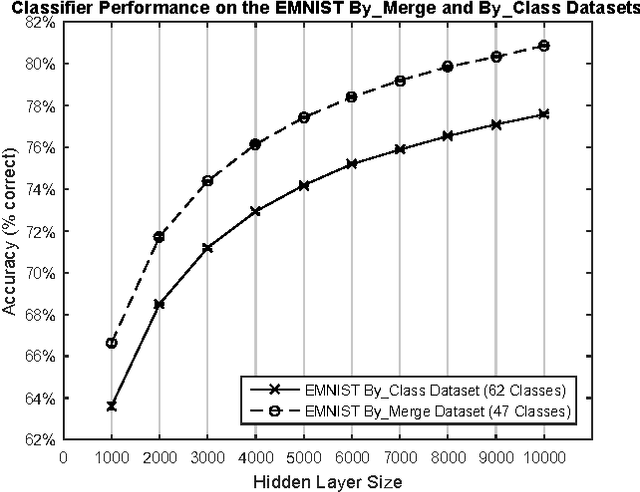EMNIST: an extension of MNIST to handwritten letters
Paper and Code
Mar 01, 2017



The MNIST dataset has become a standard benchmark for learning, classification and computer vision systems. Contributing to its widespread adoption are the understandable and intuitive nature of the task, its relatively small size and storage requirements and the accessibility and ease-of-use of the database itself. The MNIST database was derived from a larger dataset known as the NIST Special Database 19 which contains digits, uppercase and lowercase handwritten letters. This paper introduces a variant of the full NIST dataset, which we have called Extended MNIST (EMNIST), which follows the same conversion paradigm used to create the MNIST dataset. The result is a set of datasets that constitute a more challenging classification tasks involving letters and digits, and that shares the same image structure and parameters as the original MNIST task, allowing for direct compatibility with all existing classifiers and systems. Benchmark results are presented along with a validation of the conversion process through the comparison of the classification results on converted NIST digits and the MNIST digits.
 Add to Chrome
Add to Chrome Add to Firefox
Add to Firefox Add to Edge
Add to Edge